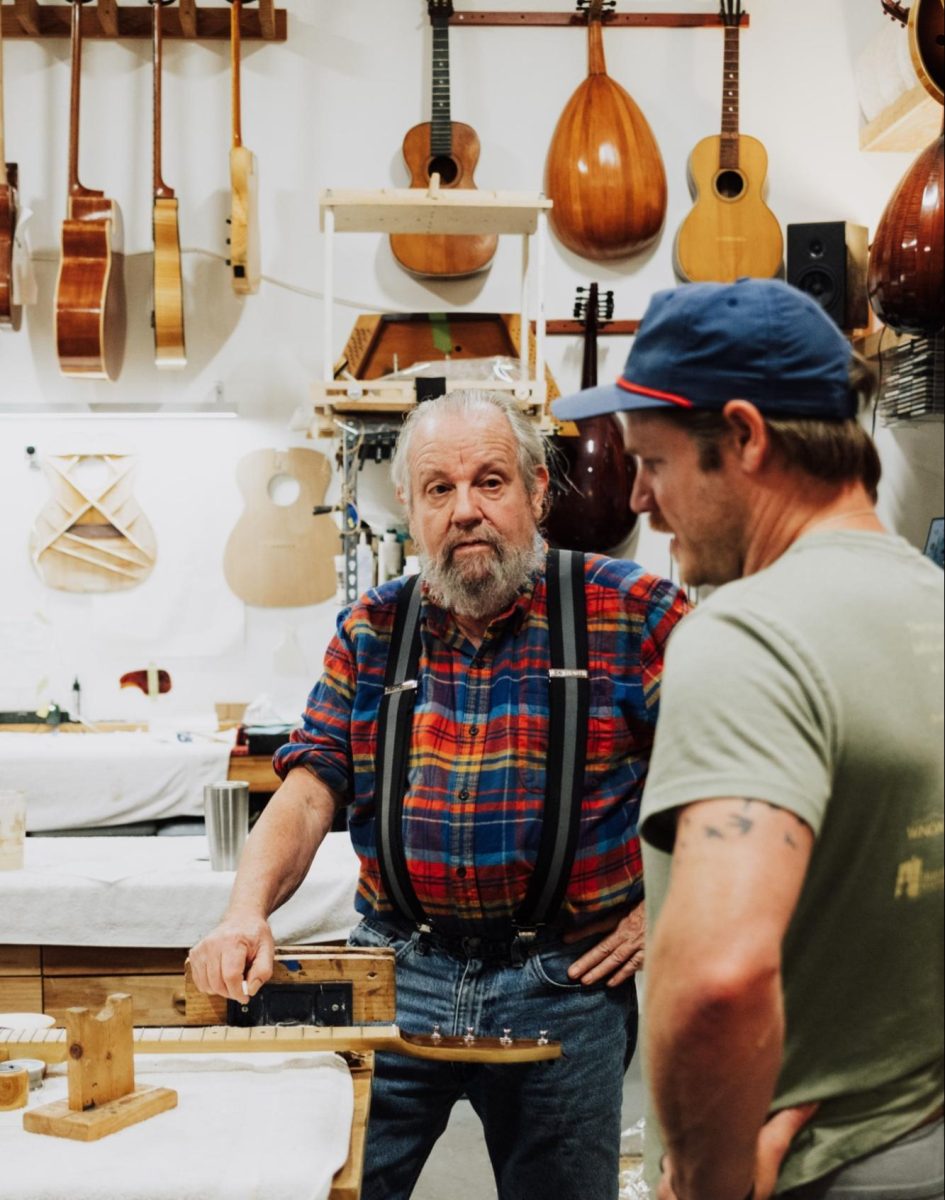A Chattanooga musician and podcast host created a network for western North Carolina’s musicians to receive donated replacements for instruments lost in Hurricane Helene.
“There are so many people that lost multiple, multiple, multiple instruments and whole studios in some cases,” said Nicholas Williams, founder of ReString Appalachia. “We’re trying to get as many of those instruments back as possible.”
Williams, producer and host of American Songcatcher, a podcast dedicated to preserving American music culture with a focus on Appalachian music, said the idea for ReString Appalachia formed over a couple of hours during a sleepless night.
“I started thinking about how people aren’t playing music right now throughout Appalachia that were affected and that really started eating away at me,” Williams said.
ReString Appalachia aims to connect musicians with the closest possible replacement for their missing gear through a donation database, in which donors and recipients fill out a detailed matching form. Williams then communicates personally with the musicians to understand what they’re looking for.
“It’s like we’re trying to look them in the eyes. We want to see them, we want to hear them, we want to be able to give them something they’re stoked on,” Williams said.
UNCA adjunct professor of cello and chamber music, Joseph Falconer, lost his musical equipment he kept in the first floor of a storage unit on Riverside Drive. His girlfriend Paige surprised him with a donated fiddle, guitar, bass guitar and cajón provided by ReString Appalachia.
“My violin was in a drawer, in its case, underwater. It splashes when you pull the door open,” Falconer said. “ReString Appalachia was a dream come true.”
Falconer plays for Johnson City Symphony, Brevard Philharmonic and the Vienna Light Orchestra. After Hurricane Helene displaced him from his home in Barnardsville, he focused on producing his own music out of a hotel room.
“I thought I was connected before but I’ve got a lot of new people to thank, a lot of new people to collaborate with, a lot of new people to just keep making music with,” Falconer said.
Falconer’s guitars were donated by owner of Assabet Strings, Harry Norris, who discovered ReString Appalachia through a Facebook post.
“I have a lot of guitars. A lot of what I do here is experimental, trying different designs out. If I’ve learned what I need to know from an instrument, I don’t necessarily need to keep it around anymore and if somebody needs an instrument I’m happy to pass it on,” Norris said.
Norris’ studio on Riverside Drive, where he continues to build and rebuild instruments, did not face damage from the storm. He plans to donate more to ReString Appalachia and other organizations.
“I keep feeding him pictures of instruments I could pass on if he needs them. I’ll keep working with him as long as there’s a need on his side and I’ve got something he can use,” Norris said.
ReString Appalachia has pick up and drop off centers spread in music communities throughout North Carolina. Instruments are dropped off or shipped to these centers where a host musician prepares and delivers the gear. Williams said he plans to expand the project to encompass Virginia, east Tennessee, north Georgia and South Carolina.
“We have received a wide variety of instruments,” Williams said. “I’m really happy that within two weeks of launching we’re able to get people instruments.”
For the first round of deliveries, Williams traveled with a videographer to document musicians receiving their new instruments. He said he plans to release a short documentary about the project on ReString Appalachia’s website.
“That will really give people a clear picture of what this looks like. The other really beneficial part of this project is the matching aspect because almost everybody receiving an instrument wants to know who the person is that gave it,” Williams said. “That’s really what this is about, it’s connecting people through compassion, through gratitude, through generosity.”
Williams said he plans to continue to use ReString Appalachia’s network to provide instrument relief for future disasters beyond Appalachia, however possible.
“I initially thought this program might just be for this particular unbelievably unfathomable disaster but we all know there are other things that are going to come up that devastate huge music communities,” Williams said. “We’re really going to dedicate ourselves to helping instrument relief efforts wherever we can.”


![Brooke Pedersen [second from the right] and Luis Reyes [right] hold banners during the Wrap The Woods event.](https://thebluebanner.net/wp-content/uploads/2025/09/ELIZABETH_PRITCHITT_IMG_3470-1200x804.jpg)
















